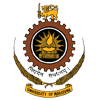The Department of Microbiology and Parasitology at the Faculty of Medicine, University of Moratuwa is committed to providing students with a solid foundation in infectious diseases and host-pathogen interactions. This department plays a vital role in equipping future doctors with knowledge critical for diagnosis, prevention, and management of microbial and parasitic infections.
Microbiology encompasses bacteriology, virology, mycology, and immunology. It focuses on understanding pathogens, disease mechanisms, diagnostic techniques, antimicrobial resistance, and public health implications of infectious agents.
Parasitology is equally essential in tropical medicine and public health. It explores parasitic organisms such as protozoa and helminths, their life cycles, transmission, diagnosis, and control. The department ensures that students gain insight into important parasitic diseases including malaria, leishmaniasis, filariasis, schistosomiasis, and soil-transmitted helminths, which are especially relevant in the South Asian region.
Teaching is integrated within the system-based MBBS curriculum, primarily in Phase 2, and contributes to modules such as Blood and Immunology, Respiratory, Gastrointestinal, Nervous System, and Infectious Diseases. The department uses lectures, laboratory sessions, tutorials, clinical case discussions, and interactive simulations to enhance learning.
Applied Learning and Relevance
Students are introduced to laboratory diagnostics, antimicrobial stewardship, infection control, and immunization strategies. A special focus is given to national disease control priorities such as dengue, malaria, tuberculosis, helminthiasis, and hospital-acquired infections.
Future Directions
The department plans to expand into molecular diagnostics, epidemiological research, and collaborative teaching with pathology and pharmacology. There are also future goals to establish a diagnostic microbiology and parasitology laboratory linked to teaching hospitals.
With its emphasis on scientific reasoning and clinical relevance, the Department of Microbiology and Parasitology plays a crucial role in preparing medical graduates to meet the challenges of infectious diseases in both hospital and community settings.
